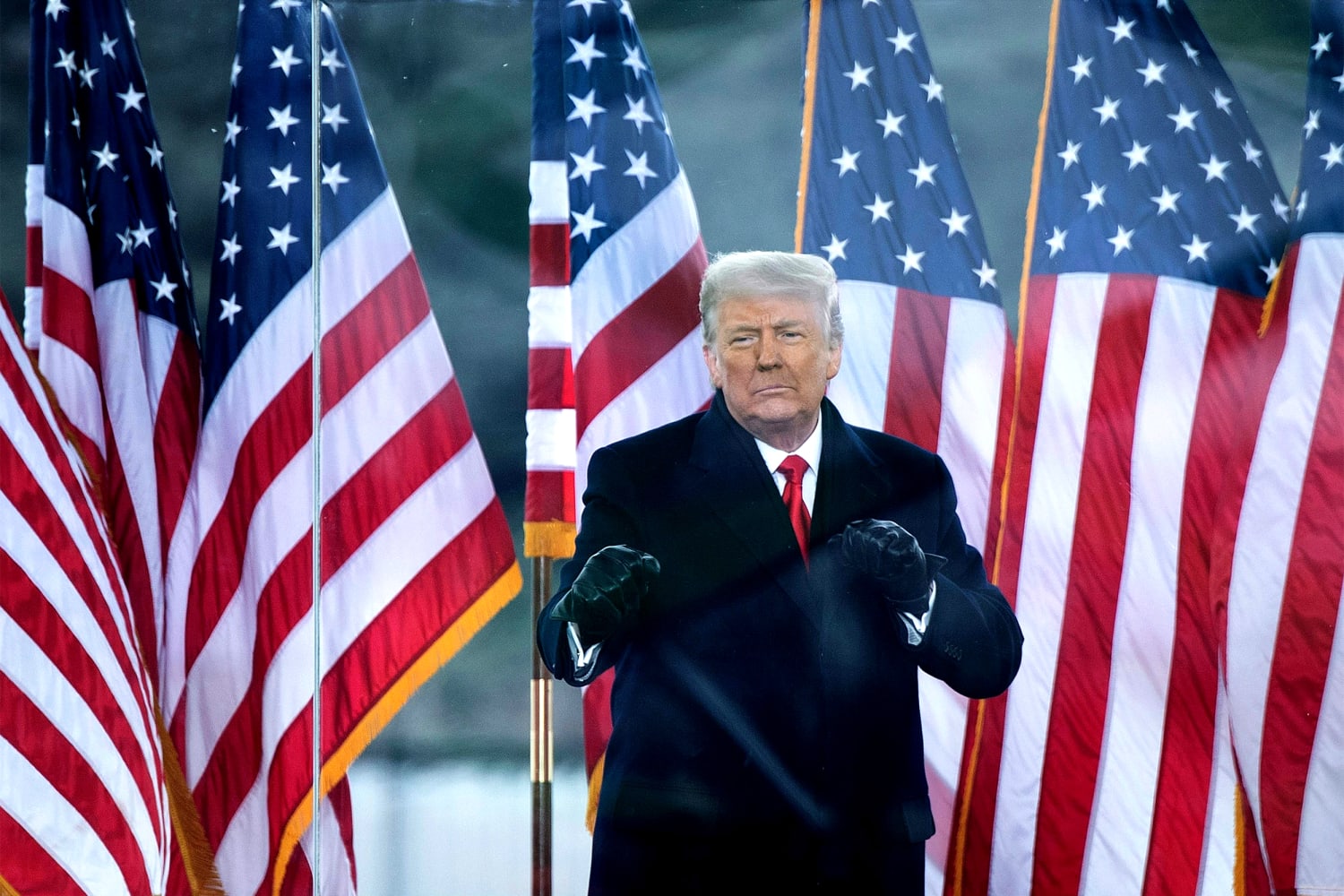WASHINGTON — The White House on Friday formally blocked an attempt by former President Donald Trump to withhold documents from Congress related to the Jan. 6 attack on the Capitol, setting up a legal showdown between the current and former presidents over executive privilege.
In a letter to the National Archives obtained by NBC News, White House Counsel Dana Remus rejected an attempt by Trump’s attorneys to withhold documents requested by the House Select Committee regarding the then-president’s activities on Jan. 6, writing that “President Biden has determined that an assertion of executive privilege is not in the best interests of the United States, and therefore is not justified as to any of the documents.”
“These are unique and extraordinary circumstances,” Remus added. “Congress is examining an assault on our Constitution and democratic institutions provoked and fanned by those sworn to protect them, and the conduct under investigation extends far beyond typical deliberations concerning the proper discharge of the President’s constitutional responsibilities. The constitutional protections of executive privilege should not be used to shield, from Congress or the public, information that reflects a clear and apparent effort to subvert the Constitution itself.”
White House press secretary Jen Psaki had telegraphed the move two weeks ago, saying President Joe Biden had already concluded that it would not be appropriate to assert executive privilege related to Jan. 6 requests. But White House officials added that they had not yet done so related to requests from the Select Committee, and would make any determinations on a case-by-case basis.
The White House now is authorizing the National Archives to turn over an initial batch of documents that fell under a broad category requested by the committee, covering Trump’s actions and communications on Jan. 6, including his rally at The Ellipse on White House grounds, and subsequent meetings and communications throughout the day.
That request sought everything from Twitter messages, phone and visitor logs, and any videos and photos of events he participated in. It also included documents and communications related to then-Vice President Mike Pence’s movements and security, and broadly any other documents referring to the rally at The Ellipse and the subsequent violent riot at the Capitol, as well as to planning around the ceremonial event of counting of electoral votes during a joint session of Congress.
According to a source familiar with the matter, the National Archives immediately began scouring records in its possession for items responsive to the committee’s request issued in August. It has been producing relevant documents both to Trump’s legal representatives and the Biden White House on a regular basis since then. The specific batch of documents in question were initially produced to both parties on Sept. 8.
A White House official could not characterize what specific documents are included in that set, beyond saying that they will shed light on certain events within the White House on Jan. 6. They said Trump’s representatives concluded that executive privilege should be asserted on some, but not all of the documents. But Biden has concluded privilege does not pertain to any of the records.
Remus says in her letter that the White House is continuing to review other materials the archives have provided since then, and will respond “at an appropriate time.”
Under federal law, former presidents ask the current president to withhold any documents created during previous administrations, which are held by the National Archives. Trump’s next step would be filing a lawsuit against the archives, but he faces long legal odds.
The courts have never definitively said how much authority former presidents have to assert the privilege once they’re out of office. But as a practical matter, the views of the current president carry considerable weight. The Supreme Court ruled in 1977 that the incumbent president “is in the best position to assess the present and future needs of the Executive Branch.”
What’s more, the privilege is not absolute. Courts apply a balancing test in deciding whether it should apply.
The Supreme Court also said the privilege is limited to communications “in performance of [a president’s] responsibilities,” which might not cover discussions of how to get the Justice Department to undermine confidence in the election results.
Pete Williams contributed.
Source: | This article originally belongs to Nbcnews.com










